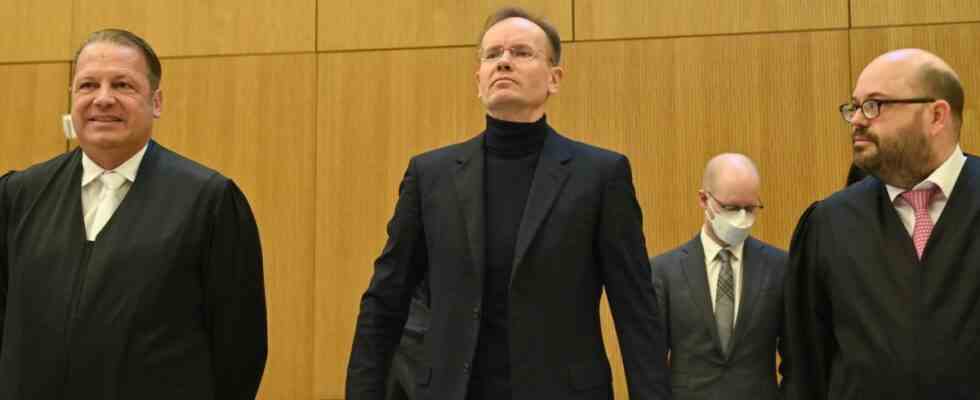Actually, this day in the Wirecard process should have started with what many observers have been waiting for almost three months: that Markus Braun, once head of the finance and technology group, has to ask questions in what is probably the largest economic process in post-war history. Although Braun had already spoken on the previous days of the negotiations, he was allowed to speak freely for the time being. Now the presiding judge Markus Födisch wanted to take over the direction. But in this process, things rarely go as planned.
The role of the interviewee alone is apparently too passive for Braun, which is why he had his defense attorneys announce a statement and presentation. So at the beginning he presents further evidence for his statements, which should give them more weight. At least in part, it can be said that this could have backfired.
Above all, his comments on the so-called ad hoc report of April 22, 2020 make the former group boss swim. This mandatory stock exchange announcement from Wirecard was about a special investigation with which the auditors from KPMG were supposed to find out what was wrong with the allegations of manipulated balance sheets and invented transactions in Asia. Braun had decided at the time that nothing was mentioned in it about the so-called audit obstacles that the KPMG people encountered in their investigation. In retrospect, the message was probably the beginning of the demise of the Aschheimer group.
According to Braun, he was even so legally fried at the time that it would have been misleading to mention the difficulties in the investigation – after all, Wirecard had submitted plenty of documents shortly before. So he omitted the reference, beforehand he had also clarified with the supervisory board and KPMG whether there would be any resistance.
The topic makes Födisch prick up your ears: Was it really the right way to simply conceal all the problems? “It would have been correct to write that there were obstacles to examination and that you would have submitted documents that you believe would remove those obstacles,” the judge states. It is the first time that Födisch has identified a specific point where he believes Braun made a mistake.
Braun’s explanation is too weak for the judge
“The situation had changed significantly before that,” says Braun. In addition, such an ad hoc announcement is not the place to accommodate complex explanations that the market cannot handle it. Federally, however, that is obviously not enough. “The market might not have done what they wanted,” he counters the accused.
In any case, less than two months after the announcement, it was clear how this market would deal with a company that had to admit that 1.9 billion euros were not where one would have expected them to be. Wirecard then collapses, the share price collapses, shareholders and creditors lose billions of euros. Well forever.
That is why, in addition to Braun, the group’s former chief accountant, Stephan E., and Oliver Bellenhaus, the key witness for the public prosecutor’s office and Wirecard’s former governor in Dubai, are also on trial. From the Gulf, Bellenhaus was also operationally responsible for the so-called third-party business in Asia – the core of the whole scandal. Local companies were to process payments for customers in countries in which the group had no licenses or whose business model was too risky for Wirecard on behalf of and through the mediation of Wirecard.
Wirecard welcomed customers who needed a “fire wall”.
“We said very clearly: We regard the third-party partners as an intermediate step,” says Braun in court. They were seen as a “fire wall”, useful as an intermediary and as an additional layer of protection between you and the dealers. According to Braun, by 2020 these partners should be replaced, own licenses acquired and the entire business offered from a single source. The board also knew that the third party business was concentrated on the three companies Al-Alam, Payeasy and Senjo.
However, Braun rejects all further responsibility in the matter. It was “located in another department”: in digital sales – and thus with his former board colleague Jan Marsalek who had fled. All appointments, contracts and other agreements are up to him and his people. And Braun would also like to make one thing clear: The theory, which Wirecard’s insolvency administrator Michael Jaffé also subscribes to, that the third-party business has – at least on paper – grown rapidly over the years and ultimately made up a large part of Wirecard’s total group profit, which is incorrect. “In my opinion, there is a lot of business confusion going on there,” says Braun.

